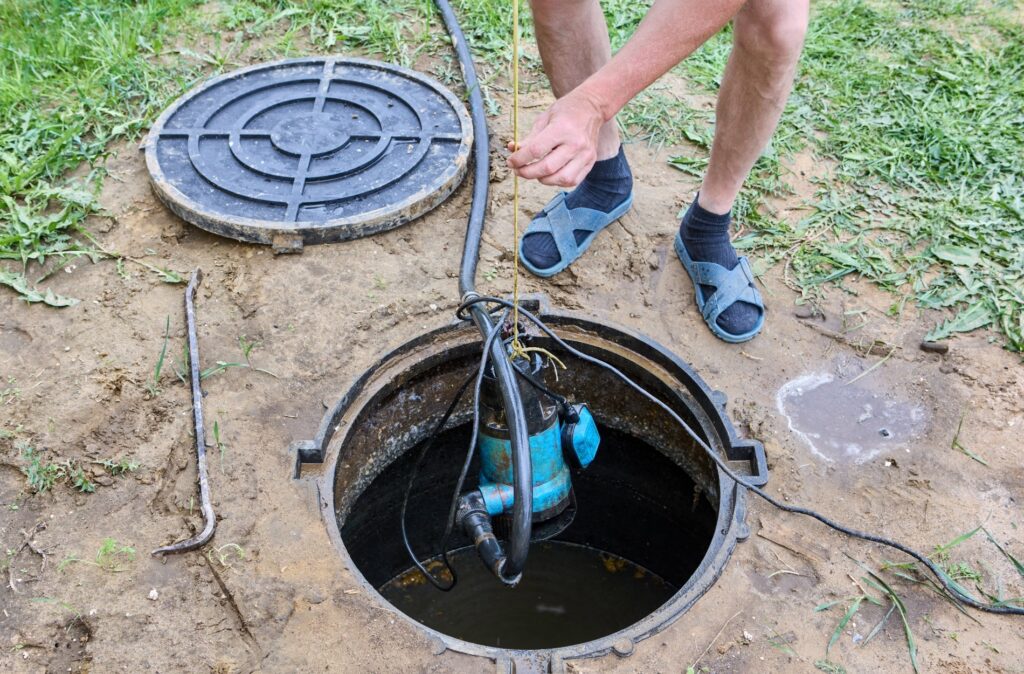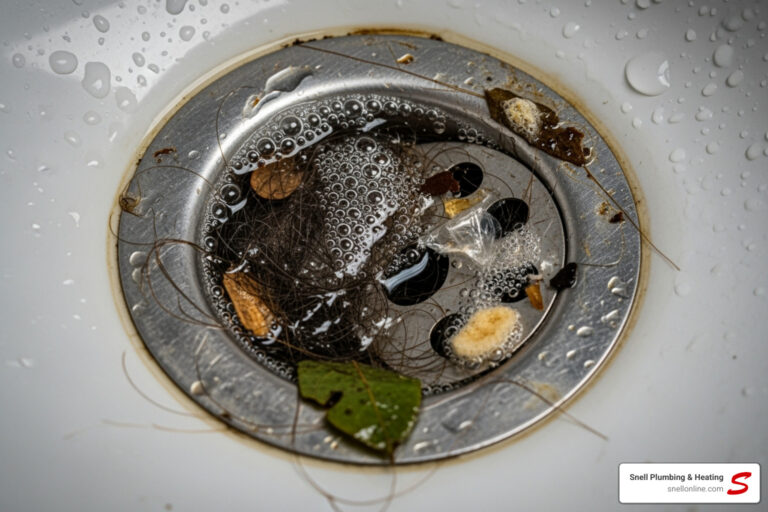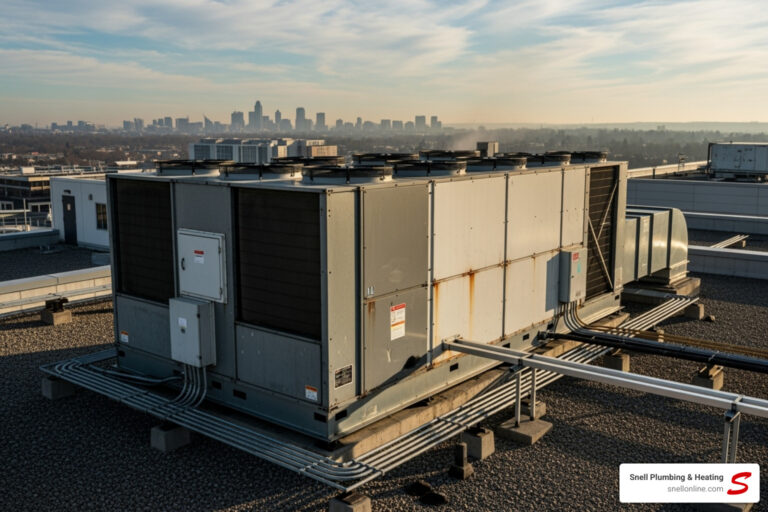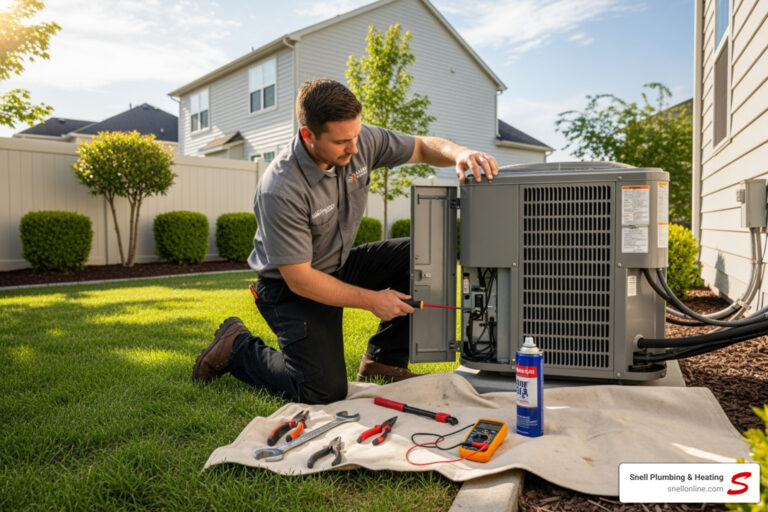Storm season in Springfield has a habit of pushing home drainage systems to their limits. A working sump pump is your home’s last line of defense when heavy rain hits hard and fast. If it fails during one of those downpours, the water that should’ve been pumped away can flood your basement or crawlspace. That kind of damage can lead to costly repairs and weeks of disruption.
Knowing the warning signs that your sump pump motor might be giving out can save you from that headache. The motor is the heart of the system. When it starts to wear down, its ability to drain water quickly and consistently drops. Catching those signs early gives you enough time to act before you’re ankle-deep in water.
Common Symptoms Of A Failing Sump Pump Motor
There are a few problems you can spot early, and when you know what to listen and look for, it’s easier to know when the motor isn’t working the way it should. A sump pump that’s about to quit often sends out a few warnings before it completely fails.
Watch for these red flags:
– Unusual sounds: Grinding, rattling, or humming tends to mean worn bearings, a jammed impeller, or an unstable motor. A quiet hum is expected when it runs, but anything beyond that should be looked at.
– Frequent cycling: If your sump pump motor is turning on and off often without heavy rain, it could be a problem with the float switch or motor itself struggling to keep up.
– Weaker performance: You might notice it runs longer than usual or fails to pump water out fast enough. This reduced efficiency shines the spotlight on deeper motor trouble.
– Failure to activate during rain: This happens when the motor has burned out or wiring has corroded, leaving the pump unresponsive during heavy storms.
One Springfield homeowner shared that their sump pump had been running louder for weeks, but they chalked it up to being older. When a summer downpour hit and flooded the basement, they realized it had completely stopped working mid-storm. Ignoring early signs, especially during storm season, can quickly lead to severe water damage.
These symptoms don’t always mean full replacement, but they’re never something you should ignore. A small issue left unchecked could lead to bigger, more expensive problems down the line.
Why Sump Pump Motors Fail During Storm Season
When storm season hits Springfield, sump pumps face more pressure than they experience the rest of the year. The combination of prolonged rain, full sump pits, and sudden water surges puts extra strain on every part of the system, especially the motor. A worn motor that might have held up during dry months can quickly buckle under that added load.
One common cause of failure is overuse. If your sump pump is running almost nonstop during storms, the motor can overheat simply from extended operation. It’s designed to cycle periodically, not run for hours at a time. When the motor doesn’t get proper resting periods, parts begin to wear out sooner.
Another issue is buildup inside the sump pit. Leaves, sediment, small rocks, and other yard debris can settle into the pit through runoff. Over time, that debris can clog the impeller or jam the motor housing. Once blocked, the motor struggles harder to rotate, creating more heat and stress.
Age matters too. If your sump pump is more than seven to ten years old, it’s more likely that the motor is reaching the end of its service life. Electrical components corrode, seals dry out, and even the most reliable system starts losing efficiency.
The storm season doesn’t create brand-new problems. It exposes the ones that are already there. Small faults turn into major shutdowns when the system is asked to run at full capacity over and over again.
Preventative Maintenance Tips
The best way to avoid sump pump trouble is to stay ahead of it. A few smart maintenance steps done regularly can help keep your system in working shape when you need it most.
Here are a few things every Springfield homeowner should do:
1. Schedule inspections with our professionals before storm season begins. They can check for signs of wear that aren’t visible to the untrained eye.
2. Clear out the sump pit every few months. Remove leaves, mud, and loose gravel. A clean pit helps prevent clogs that can strain the motor.
3. Test the sump pump’s function by pouring a small amount of water into the pit. The float should rise, the pump should turn on, and water should be removed quickly.
4. Listen to it while it runs. New noises or longer run times usually mean the motor is starting to work harder than it should.
5. If your pump has a backup battery, test it too. Backup systems often fail quietly from corroded terminals or dead batteries.
Basic steps like these take just a little effort and can extend the life of your sump pump motor. More important, they give you a clearer idea of when things are starting to go wrong.
When To Call Our Technicians For Help
There are times when maintenance won’t solve the issue. If your sump pump keeps acting up even after cleaning and simple checks, the problem might be deeper than what can be fixed on your own.
Reach out to our technicians if:
– The pump consistently fails to start or runs unpredictably
– You notice electrical issues like flickering lights when it activates
– The system can’t keep up with regular rainfall, even when running continuously
– There are signs of flooding inside your basement or around the pump area
– Loud or grinding noises return shortly after you’ve cleared debris
Sump pumps don’t always need full replacement, but ignoring repeated malfunctions can put your home at serious risk. Our technicians can inspect the unit, check internal components, and help determine if it still has useful life left or needs to be upgraded. That kind of expert input ensures you’re not left second-guessing when the weather gets rough.
Storm Prep Starts With Your Sump Pump
The middle of storm season isn’t the time to wonder if your sump pump motor is up for the task. The signs of trouble don’t always start big. They can be small changes in sound, timing, or performance. Ignoring them, especially during Springfield’s summer downpours, can put your home at risk for flooding and water damage.
A failing motor often gives you warning before it stops for good. Addressing those early issues not only keeps your basement dry, it also gives you some peace of mind whenever the rain rolls in. Regular checks and timely repairs go a long way in keeping your home safer through the wettest months.
If storm season is testing your drainage system and you notice persistent issues with your sump pump, it may be time to get a professional evaluation to keep your home safe from unexpected flooding during heavy rains. The team at Snell Plumbing & Heating can help diagnose early problems and recommend necessary repairs to maintain your system’s performance and ensure your basement stays dry with a properly functioning sump pump in Springfield. For a quick estimate or to book a service visit, please contact us today.





